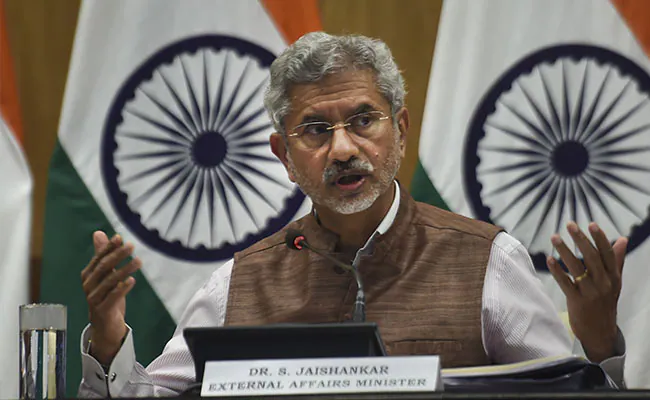
In the wake of military clashes with Pakistan, India has initiated an unprecedented global diplomatic campaign to rally international support for its foreign policies. The multi-pronged effort, which includes dispatching parliamentary delegations to 33 countries, seeks to isolate Pakistan diplomatically by highlighting alleged links between Islamabad and cross-border militant groups. However, the initiative unfolds against a complex backdrop of historical tensions and contested narratives in South Asia.
The Pahalgam Attack and Immediate Aftermath
On April 23, 2025, gunmen ambushed tourists at Baisaran Valley, a scenic destination in Pahalgam, marking the deadliest assault on civilians in Kashmir since 2000. Eyewitnesses described militants emerging from nearby forests and firing indiscriminately into crowds, killing 26 individuals—including a recently married Indian Navy officer, an Intelligence Bureau official, and two foreign nationals from Nepal and the UAE. Prime Minister Narendra Modi, who curtailed a state visit to Saudi Arabia, condemned the “heinous act” and vowed to bring the perpetrators to justice.
Indian security forces launched Operation Sindoor, a large-scale military and intelligence operation, to track down the attackers. While no group has claimed responsibility, Indian authorities attributed the assault to Pakistan-based militants, citing historical patterns of insurgent activity in the region. Jammu and Kashmir Chief Minister Omar Abdullah noted the attack’s scale exceeded recent violence targeting civilians, underscoring its symbolic impact on tourism and regional stability.
India’s Diplomatic Offensive: Strategy and Scope
In response, India deployed seven all-party parliamentary delegations to 33 nations, including key players like the United States, Russia, France, and Gulf states. The delegations, comprising members from the BJP, DMK, Samajwadi Party, and other political groups, aim to present a unified domestic front while lobbying for global condemnation of Pakistan’s alleged support for militant groups.
The campaign’s objectives are twofold: first, to legitimize India’s “zero-tolerance” counterterrorism doctrine through multilateral endorsements, and second, to pressure Pakistan via economic and political isolation. In Russia, for instance, the delegation led by DMK MP Kanimozhi engaged with policymakers at the State Duma and prominent think tanks, emphasizing the need for a coordinated approach to combat state-sponsored terrorism. Similar efforts are underway in European capitals, with a focus on leveraging India’s growing economic clout—recently surpassing $4 trillion in GDP—to sway diplomatic agendas.
Balancing Narratives and Neutrality
India’s narrative frames Pakistan as a persistent sponsor of terrorism, a claim Islamabad has consistently denied. The Pakistani government has historically characterized Kashmir’s insurgency as an indigenous freedom struggle, rejecting accusations of logistical or financial support for militant groups. This dichotomy complicates international responses, particularly among nations like China and Türkiye, which have traditionally maintained warmer ties with Pakistan.
The European Union’s delegation structure, which includes separate committees for relations with South Asian nations, reflects the delicate balancing act required in such engagements. India’s outreach emphasizes shared democratic values and counterterrorism cooperation, yet avoids direct criticism of allies’ bilateral relationships with Pakistan. For example, while addressing Russian officials, delegates highlighted mutual concerns about extremism without explicitly referencing Moscow’s arms deals with Islamabad.
Historical Context and Policy Continuity
India’s current campaign echoes earlier counterterrorism strategies, notably the post-2008 Mumbai attacks diplomacy that led to Pakistan’s inclusion on the Financial Action Task Force’s “grey list”. Home Minister P. Chidambaram’s 2009 declaration of “zero tolerance” for terrorism, irrespective of ideological origins, established a bipartisan framework that persists today. However, the scale of the present initiative—spanning 33 nations—marks a qualitative shift toward proactive, sustained diplomatic engagement rather than reactive measures.
Critics argue that India’s approach risks oversimplifying the Kashmir conflict’s root causes, which include longstanding territorial disputes, regional autonomy demands, and socioeconomic grievances. Conversely, supporters contend that isolating Pakistan internationally is essential to deter future attacks and validate India’s stance on Kashmir’s constitutional integration.
Implications for Regional and Global Security
The diplomatic offensive coincides with heightened military preparedness along the India-Pakistan border, where both nations have conducted artillery drills and troop reinforcements in recent weeks. While full-scale conflict remains unlikely, the sustained pressure campaign could exacerbate bilateral tensions, particularly if accompanied by economic measures such as trade restrictions or revoked transit privileges.
Globally, the initiative tests India’s ability to translate economic ascendancy into geopolitical influence. Success would bolster its candidacy for permanent United Nations Security Council membership and strengthen partnerships with Quad allies (the U.S., Japan, and Australia). Conversely, perceived overreach or insufficient evidence linking Pakistan to the Pahalgam attack could undermine credibility, especially among non-aligned nations.
India’s response to the Kashmir attack exemplifies the interplay between domestic security imperatives and international realpolitik. By marshaling cross-party consensus and leveraging multilateral platforms, New Delhi seeks to reshape global counterterrorism discourse in its favor. Yet, the campaign’s long-term efficacy hinges on nuanced diplomacy that acknowledges regional complexities while maintaining pressure on alleged state sponsors of militancy. As delegations continue their outreach, the world watches whether dialogue and evidence can prevail over entrenched animosities in South Asia.
Comments
Post a Comment